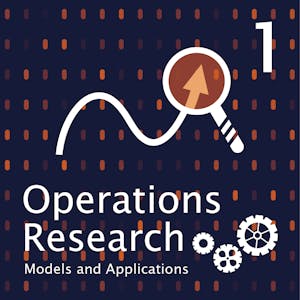Probabilistic Graphical Models 2: Inference
About this Course
Probabilistic graphical models (PGMs) are a rich framework for encoding probability distributions over complex domains: joint (multivariate) distributions over large numbers of random variables that interact with each other. These representations sit at the intersection of statistics and computer science, relying on concepts from probability theory, graph algorithms, machine learning, and more. They are the basis for the state-of-the-art methods in a wide variety of applications, such as medical diagnosis, image understanding, speech recognition, natural language processing, and many, many more. They are also a foundational tool in formulating many machine learning problems. This course is the second in a sequence of three. Following the first course, which focused on representation, this course addresses the question of probabilistic inference: how a PGM can be used to answer questions. Even though a PGM generally describes a very high dimensional distribution, its structure is designed so as to allow questions to be answered efficiently. The course presents both exact and approximate algorithms for different types of inference tasks, and discusses where each could best be applied. The (highly recommended) honors track contains two hands-on programming assignments, in which key routines of the most commonly used exact and approximate algorithms are implemented and applied to a real-world problem.Created by: Stanford University
Related Online Courses
In this 1-hour long project-based course, we will learn to create an IoT hub in the Azure cloud, register an IoT device within that IoT hub, send telemetry data from a raspberry pi web simulator to... more
Master the art and science of securing complex IT infrastructures with the Security Engineering and Cryptography course. This comprehensive program empowers you to implement secure configurations,... more
Within this 1-hour long guided project you will learn how to create decision-support interactive dashboards merging economic and spatial data with Qlik Sense. These types of dashboards graphically... more
In this course, you\'ll embark on a detailed journey through the core components of DevOps. Starting with an introduction to DevOps principles, you\'ll gain a clear understanding of the cultural... more
Operations Research (OR) is a field in which people use mathematical and engineering methods to study optimization problems in Business and Management, Economics, Computer Science, Civil... more








